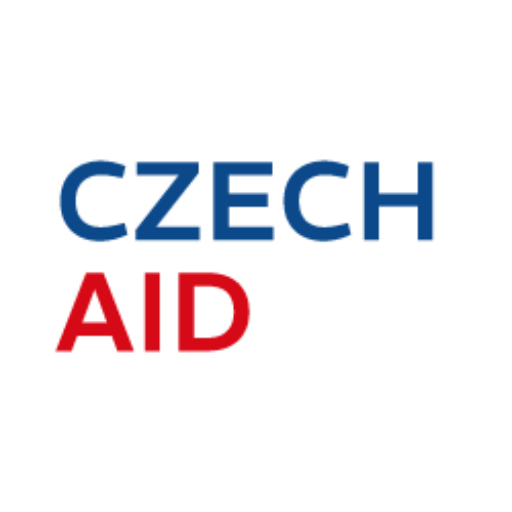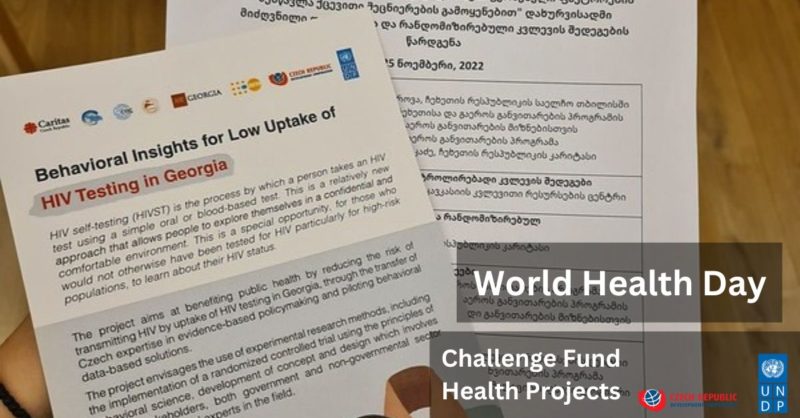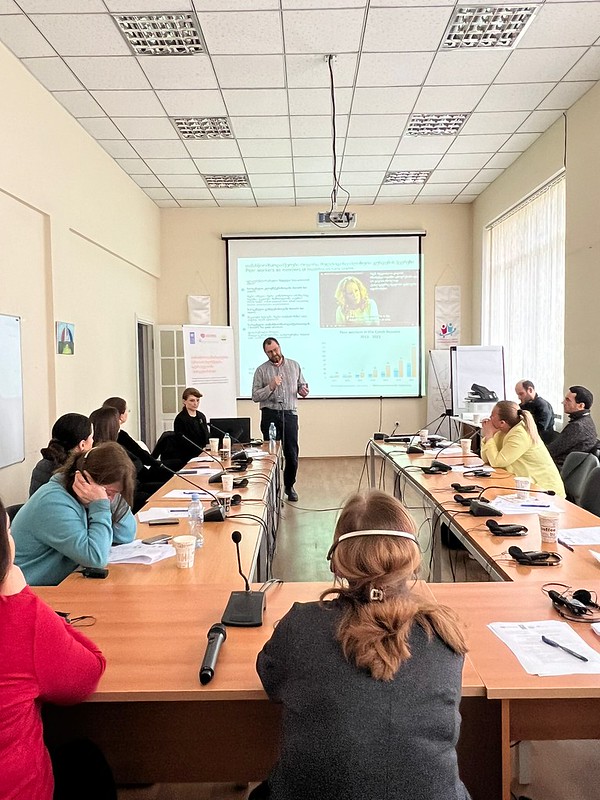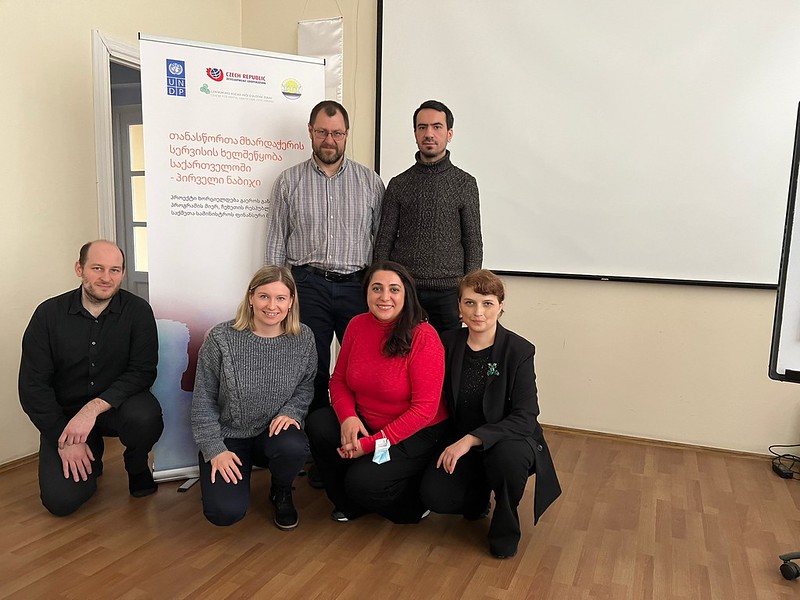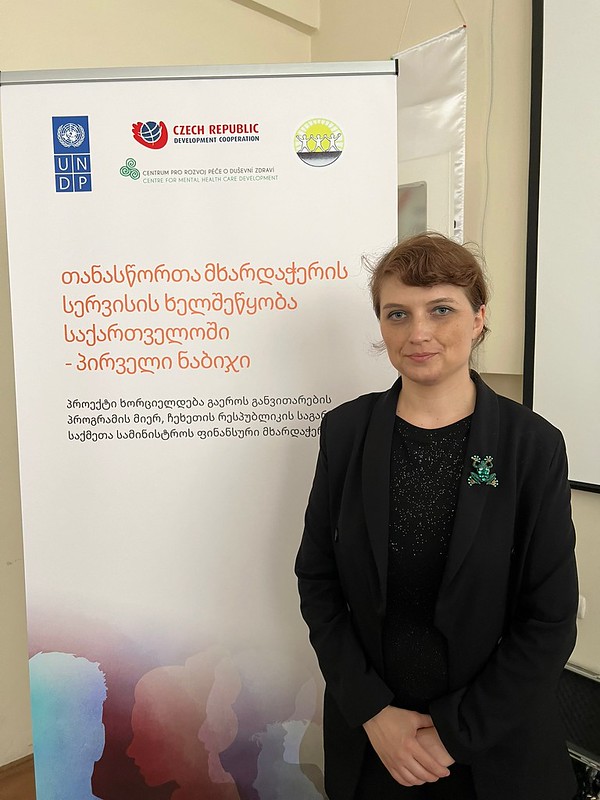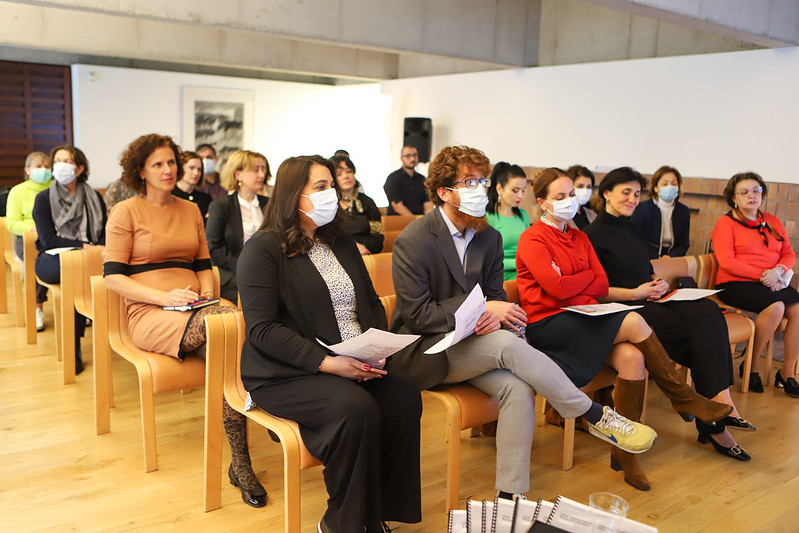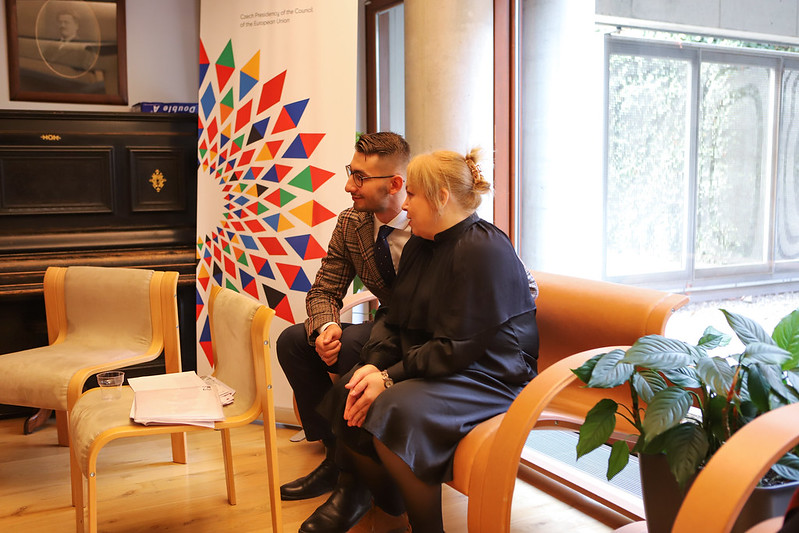World Health Day – Challenge Fund Health Initiatives
This month on 7th of April, we observed World Health Day. It is celebrated annually and each year draws attention to a specific health topic of concern to people all over the world. The date of 7 April marks the anniversary of the founding of WHO in 1948.
In our Challenge Fund projects, we have had two health projects – one supporting peer work in mental health services and one with a goal to increase the uptake of HIV testing, both projects were located in Georgia.
Read below the interview with project managers Olga Kalina (a human rights activist in the disability and mental health fields in Georgia) and Ekaterina Meskhrikadze (Deputy Head of Mission, Caritas Czech Republic in Georgia).
Interview with Olga Kalina:
Can you please briefly explain what is the peer project about?
Peer support in mental health services is an innovative intervention in which peers, who are trained people with the lived experience of mental health problems offer support to others with mental health problems in social services, psychiatric hospitals and other social and health facilities. You have probably seen in movies peers support groups, when people are sitting in a circle and one by one speak about their experiences. Peer support can be about any vulnerability, not necessarily medical, for example there may be peer support groups of fathers who have to raise their children alone. Peer support can be individual and in groups, but the essence is the same: persons with similar difficulties share their experience, provide support and motivate each other.
Our peer support project envisages training of the first peers and giving them the opportunity to go through the paid 2 weeks internship in mental health services. The training will be conducted by experienced trainers from Czech NGO “Centre for Mental Health Care Development” (CMHCD) for 14 participants. At least 8 of them will complete the training and go through the internship. After the internship there will be another round of training with review of practical challenges and barriers. Peer support service standard and training curriculum will be developed and submitted to the responsible authorities. 2 Thematic webinars for wider audience will be conducted as well to raise awareness and answer questions about the service. Overall, this is going to create the basis for integration of peer support component in existing mental health services in Georgia.
How is the Czech experience with peer work relevant for Georgia?
As it was mentioned previously, the peer workers have to be trained, and they need to be trained with direct involvement of peers who can share their practical experience and advice. Czech experience is very helpful both because Czech Republic has peer support service in mental health functioning for approximately 10 years, and because the context of mental health services at the start of peer support service in Czech Republic was quite similar to the situation in mental health services in Georgia now. The Czech organization we are working with “Centre for Mental Health Care Development” (CMHCD) has direct experience in implementation of peer support service in Czech Republic, and also with reforming services in Moldova. So, they both have the required experience of service implementation and transformation of services in another country.
Why is it important for Georgian Healthcare system to adopt peer work standards?
The need to develop peer support service is mentioned in the Georgian MH strategy and relevant action plan. According to the Georgian Mental Health Strategy 2022 – 2030 and Action plan 2020 – 2024, peer work should be developed in at least 10% of mental health services in the country by the end of 2024. The service is important due to many factors: first there is a need to empower persons with mental health problems, give them hope, attention, information from the perspective of someone who has been through similar difficulties. Lack of personnel and severe lack of psychosocial interventions in Georgian mental health care system is a recognized fact, and involvement of peer supporters can help both with the personnel related problem, and with the psychosocial interventions. Apart from that, peers get their chance at having employment and professional recognition, which is very important for people who otherwise may stay unemployed due to their psychosocial disability. In addition, peer work sends a positive message to society: persons with psychosocial disability can work, can contribute to society and care for others. These messages can be very helpful in challenging wide spread stigma related to mental health problems.
What are the next steps for the project and what is your ideal outcome of the project?
The next steps for the project would be as follows: in April peer trainees will complete the first part of their training in peer support, there will be 4 days of online training. After that by June peers will have an opportunity to go through the paid 2 weeks internship in mental health services with supervision from the experts involved in the project. The standard of peer support in mental health services will be created in cooperation between CMHCD, PER and Georgian mental health experts and forwarded to responsible authorities. The project is going to end in September, with the final event involving relevant stakeholders.
All of these activities will create conditions for the development of peer work in Georgia and will help to fulfil the innovative part of the Mental Health Strategy 2022 – 2030 and Action plan 2020 – 2024 which is the ideal outcome of the project.
Interview with Ekaterina Meskhrikadze:
Can you please briefly explain what was the project about?
The project objective was to increase the uptake of HIV testing in Georgia through the transfer of Czech expertise in evidence-based policymaking and piloting behavioural data-based solutions. The project was a continuation of a joint innovative initiative of UNFPA and UNDP about the key hindering factors for low uptake of HIV testing through a Behavioural Insights (BI) prism.
What were the final results?
HIV testing is associated with significant stigma among the population of Georgia, particularly given challenges around privacy in the country. The stude developed within the project reported the results of three iterative randomized control trials aimed at addressing this challenge. Via using the randomized control trial different interventions were tested against a control group, which does not receive any intervention or a baseline intervention. (The first trial looked at which message was most likely to lead to interest in and actual orders of HIV self-tests. The second trial increased the salience of key messages tested. The third trial attempted to make the HIV self-test order process simpler, using the top messages from the previous two trials). RCT is considered the scientific gold standard across disciplines for identifying whether an intervention is effective or not. Through randomizing which intervention a person receives, the researcher can be certain that on average the only difference between the different groups is that one received the intervention (or treatment) and the other(s) did not. For the present study, randomization took place using Facebook’s A/B testing tool. In total the messages were viewed several hundred thousand times, by at least one in five Georgians aged 18-34. Overall, the study found that the most effective message offered participants the opportunity to participate in an iPhone raffle.
How these findings help to solve raising incidence of HIV in the country?
The study results were shared with the all key stakeholders including National Center for Desease Control, NGOs, sector representatives and experts in the filed. Study results will assist the interested parties based on the evidence-based reserach results to plan effective communication campaign targeting general population and thus increase the HIV update in the country.
What are the next steps for the project?
It`s recommended to i) Consider providing HIV self-tests to people outside the young key populations; ii) Consider providing HIV self-tests in a manner which increases the confidentiality of the process, and promote the measures used to increase confidentiality; iii) Consider running a regular raffle of a desirable item to encourage wide-scale participation in HIV self-testing programs.
About the Czech-UNDP Partnership for SDGs
The partnership of the Czech Republic and UNDP supports innovative solutions from the private sector of the Czech Republic, non-governmental organizations, universities, state institutions, research centers and individuals for solving specific development challenges in priority countries (Bosnia and Herzegovina, Georgia, Moldova, Ethiopia, Cambodia, Zambia). The implementation of projects and expertise is financially supported by the Ministry of Foreign Affairs of the Czech Republic.

